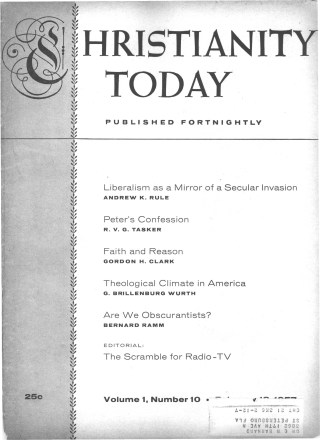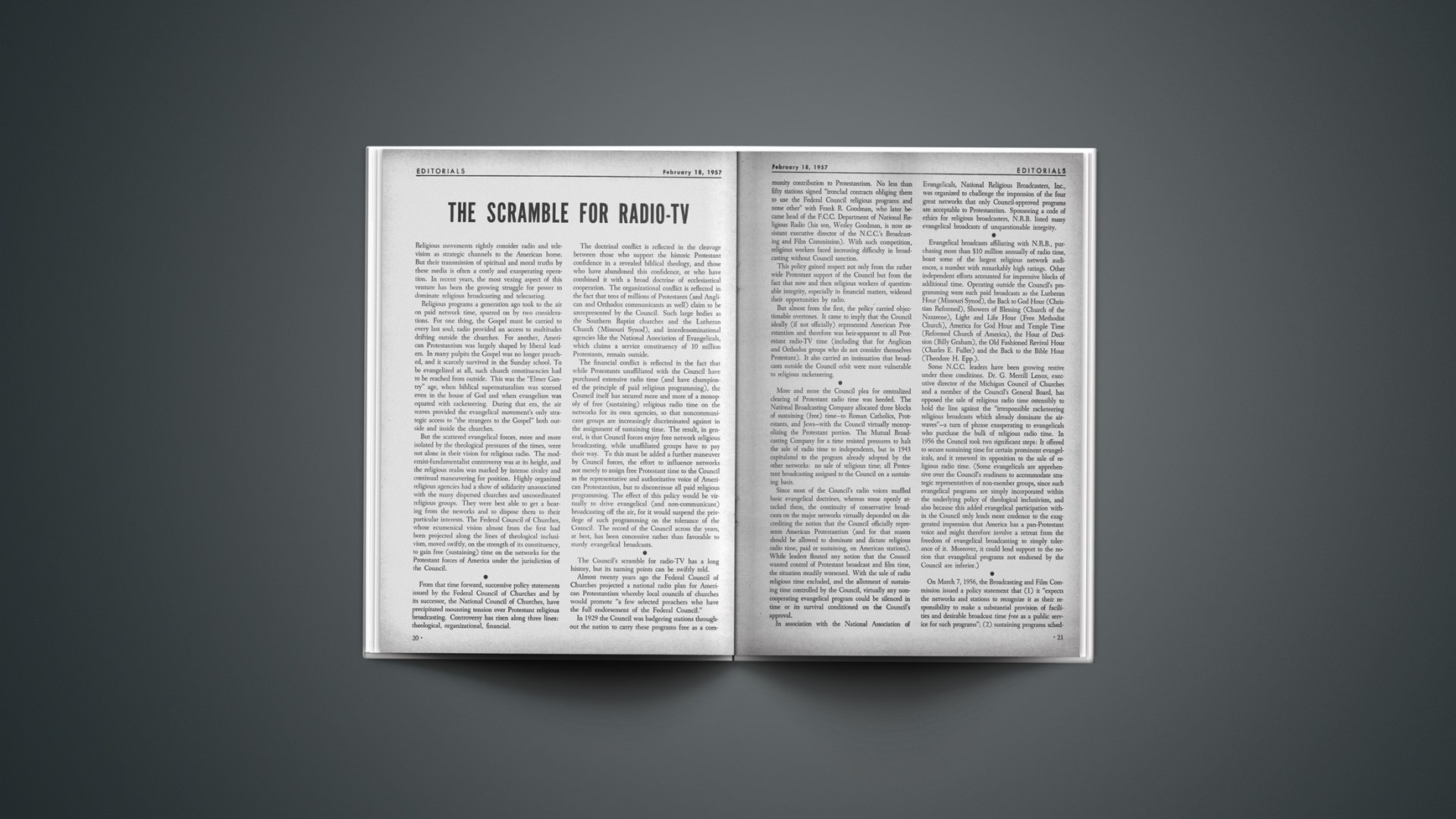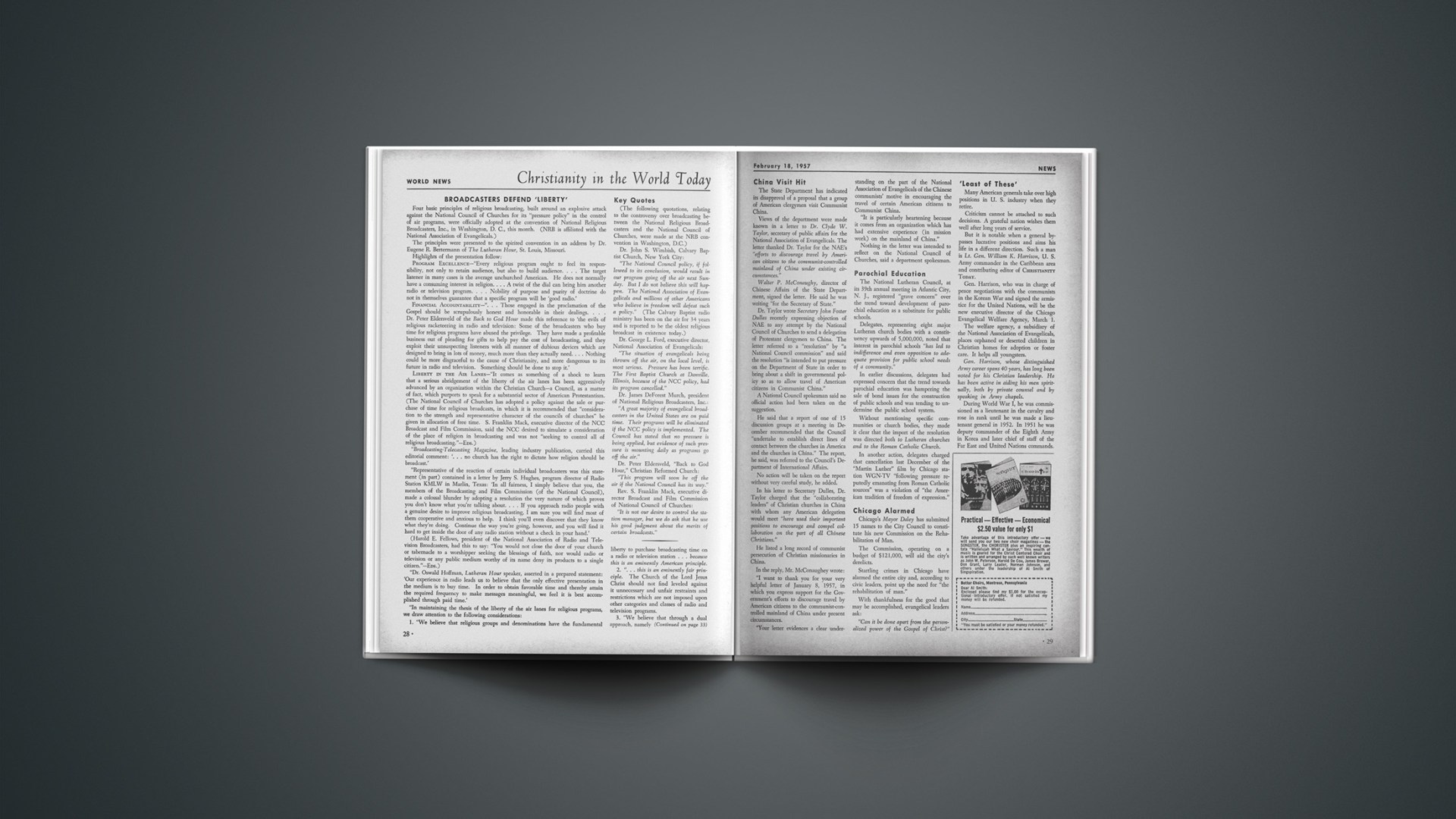No Christian can visit Korea and not be moved with a sense of deep gratitude to God for what he has done in that land. In no other field where Christian missions have had a reasonably adequate opportunity to work has there emerged a church of the strength and influence on the life of the nation as a whole comparable with that to be found in Korea.
Comparisons can be unwelcome for they are not always justified. But on any given Sabbath it has been estimated that more people worship in Seoul’s largest Presbyterian church than in all churches of that denomination in all of Japan. And this church is but one of over four hundred in that city, over half of which are Presbyterian. This may give a relatively true picture of the comparative impact which Christianity has made on these two nations.
Presbyterianism is strong in Korea because of the combined work of American, Australian and other missions of that denomination over the years. The Methodists, Baptists and others also have much to show for their work.
Reasons For Growth
Many factors have entered into the success of the Christian enterprise in Korea. They are a religious people, devout in worship and ready and anxious to hear. National frustration during the years of Japanese occupation may have driven some into the church for solace. In addition, exceedingly wise mission policies were adopted by the early missionaries. What is known as the “Nevius Plan” led to the establishing of a self-reliant national church, looking to the missions primarily for spiritual cooperation rather than for financial assistance.
Furthermore, the Korean Church has been a Bible-instructed church. For many years, during the cold winter months, centers of organized study were held in central locations. Here church officers and lay readers, men and women, would join in two or more months of intensive study. The courses were set up on a long-range basis so that Christians received comprehensive instruction over a period of several years. This led to probably the highest rate of spiritual literacy to be found.
The Korean Church has been a praying church. Even today almost all places of worship are open long before dawn and thousands of Christians resort to them to pray. That these buildings are unheated and the weather sub-freezing does not deter these earnest people.
Suffering too has taken its toll and borne its precious fruit. Because of their faith, thousands of pastors and other Christians have undergone imprisonment, torture and death. The Shrine issue, imposed by the Japanese, found hundreds of Korean pastors ready to endure prison and torture rather than violate their consciences. To them submission to the demands that they attend Shrine ceremonies involved an act of idolatrous worship and they were willing to suffer for conscience and principle’s sake.
Later even greater and more universal atrocities were perpetrated by the Communists who rightly considered the church and Christians their greatest source of opposition. At least five hundred pastors were martyred by the red invaders and tens of thousands of other Christians died because of their allegiance to Christ.
The Korean Church has been a generous church, Christians often giving far more than their tithe. Many bring an offering of rice each week, having taken a part of this major source of their diet and set it aside for the work of the Church.
Such faith and virile Christianity have resulted in churches scattered over the length and breadth of Korea. Prior to the taking over of the North by the Communists, the Church was particularly strong in that area. Reliable information today indicates that rigorous suppression has driven the church underground. Of great significance is the fact that there is a Christian church on an average of every three miles along the southern border of the DMZ (demilitarized zone) which stretches across Korea.
The present Korean government recognizes the significance and importance of the Christian movement through the appointment of Christian chaplains for the armed services. Prisons also have chaplains. Only under the Nationalist government on Taiwan (Formosa) does a similar situation exist in the Far East.
A Time Of Burden
But it would be wrong to imply that World War II, liberation from the Japanese, the arbitrary division of the country, the invasion of the South by the Communists with the attending loss of life and destruction of property and now the uneasy truce and the blight of economic instability, have not all combined to affect the church adversely. These things are taking their toll.
Prior to the communist invasion the population of Korea was more or less equally divided geographically. Today twenty-two million people live in the South, only six in the North. This influx of people from the North has brought its blessings and its serious problems. Many Christians have come South, men and women strong in the faith and willing to bear their witness. Literally hundreds of new churches have been started by and for these displaced persons and most of them are self-supporting.
But such wholesale transplanting of the population has been attended by serious economic problems. The North has been developed industrially and in that area there are rich reserves of iron, good coal and other minerals. The South has been largely the granary of the country. New industries are now being gradually developed but last year the entire exports were said to be only twenty million dollars. The refusal of the present government to accept normal economic relations with Japan is a handicap to both countries, particularly Korea. It is also encouraging wholesale smuggling from Japan.
The disruption of wars and their aftermaths are also to be noted in the life of the Church. Less emphasis is now laid on organized Bible study than formerly. Standards in some theological seminaries have been lowered until a graduate of a “night seminary,” of which there are many, is now accepted in the senior class and subsequently graduated.
Relief money and goods have been poured into Korea in recent years. Desperately needed at the beginning, the continued flow of help from the outside is in danger of having an adverse effect in the important realm of self-support and self-reliance. Also, seeing hundreds of millions of dollars poured into the country by the American government, some of which is obviously squandered and misused, seems to be creating a desire for more money from abroad, even in the work of the church.
It is of more than passing significance that an American administrator recently asked an experienced missionary to explain to him the “Nevius Plan,” with the candid admission, “We have made a mess of much of our relief program in this country.”
Experienced mission personnel in Korea seems united in the opinion that certain mission boards are now complicating the situation for the Korean Church by proposing a policy directly antithetical to the policy that was so largely responsible for the strong Church which exists in Korea today. The observation has been made by one missionary that the recipients of relief funds should never be the ones who administer those funds. Also, that any move to subsidize a church, be it in America or in Korea, is a “step backward, nor forward.”
Preacher In The Red
FOR PAGANS ONLY
The problem of making an early contact with newcomers to the city has always been a problem for me as a minister.
In my pastorate of the First Christian Church, Lynchburg, Va., I thought I was on the way to finding a solution when I obtained the names of all newcomers to the city each week from a merchant association.
I wrote each new resident a brief note of welcome. I urged them to join in the religious life of the city and I invited them to attend a morning or evening service of worship at my church.
Everything was going well until one day I received a letter of reply from one of the newcomers.
The letter read:
“Your letter expressing interest and welcome to us on our arrival here is very kind. I am sure that you did not note that I will be occupying the pulpit here in Fairview Heights Methodist Church each Sunday for both services, but nevertheless it is good to be welcomed. Trusting I may have the privilege of meeting you soon, and with best wishes, I am Sincerely, (signed) F. Lester Hylton.” COLBERT S. CARTWRIGHT Pastor, Pulaski Heights Christian Church, Little Rock, Ark.
Faith And The Future
What of the future? Korea is a land of uncertainties. Divided by the agreement of outside powers; an armed camp by necessity; living perilously on an economy based on outside aid; controlled by a government strong in determination to resist Communism, (and even economic ties with Japan), but weak and often corrupt at local levels; little wonder that optimism is a lagging commodity in that land. There is an overwhelming sense of uncertainty, of living from day to day, of an unwholesome dependence on American money and might. There is also a rightful yearning for a re-united country, a country now divided and for which American leadership is rightly blamed.
The bright spot on the horizon, and it is a bright spot, is the devotion, loyalty and faith of the Church. Those who have invested their lives or their money in Christian work in that land have much to show for their investment. The same God who has strengthened and blessed that Church is still present and active today.
Apparently secure in the peace and plenty of American Church life we should pray earnestly for our brothers in Christ in Korea, a land of triumph and a land of shadow.
END
My Father
He knows! My heavenly Father surely knows
The mortal limitations that oppress
This earth-born frame: the dire distress
Of surging griefs: the diabolic foes
That hold the soul in grim encounter: every need
He knows, and all my wants His mercies still exceed.
He cares! I know my heavenly Father cares,
And bids me cast on Him the pressing load
Of dark, foreboding thought. ’Tis mine the road
Of filial trust to tread, since He who bears
In hands omnipotent the sparrow and the ages
Makes me His care, and for my weel His might engages.
He can! My Father’s boundless grace can meet
The high demands of full salvation: sure
His succour in temptation, to endure
His help sufficient, swift His rescuing feet.
His promises arc matched with equal powers: the score
Of all my prayers this motto bears, “He can do more!”
He will! Performance crowns the triple grace
Of knowledge, care and power divine. What work
Begun will be performed until the murk
Of time dispels. Complete before His face
I then shall stand from pain and tribulation brought,
While powers supernal loud acclaim, “What hath God wrought!”
J. C. MACAULAY











